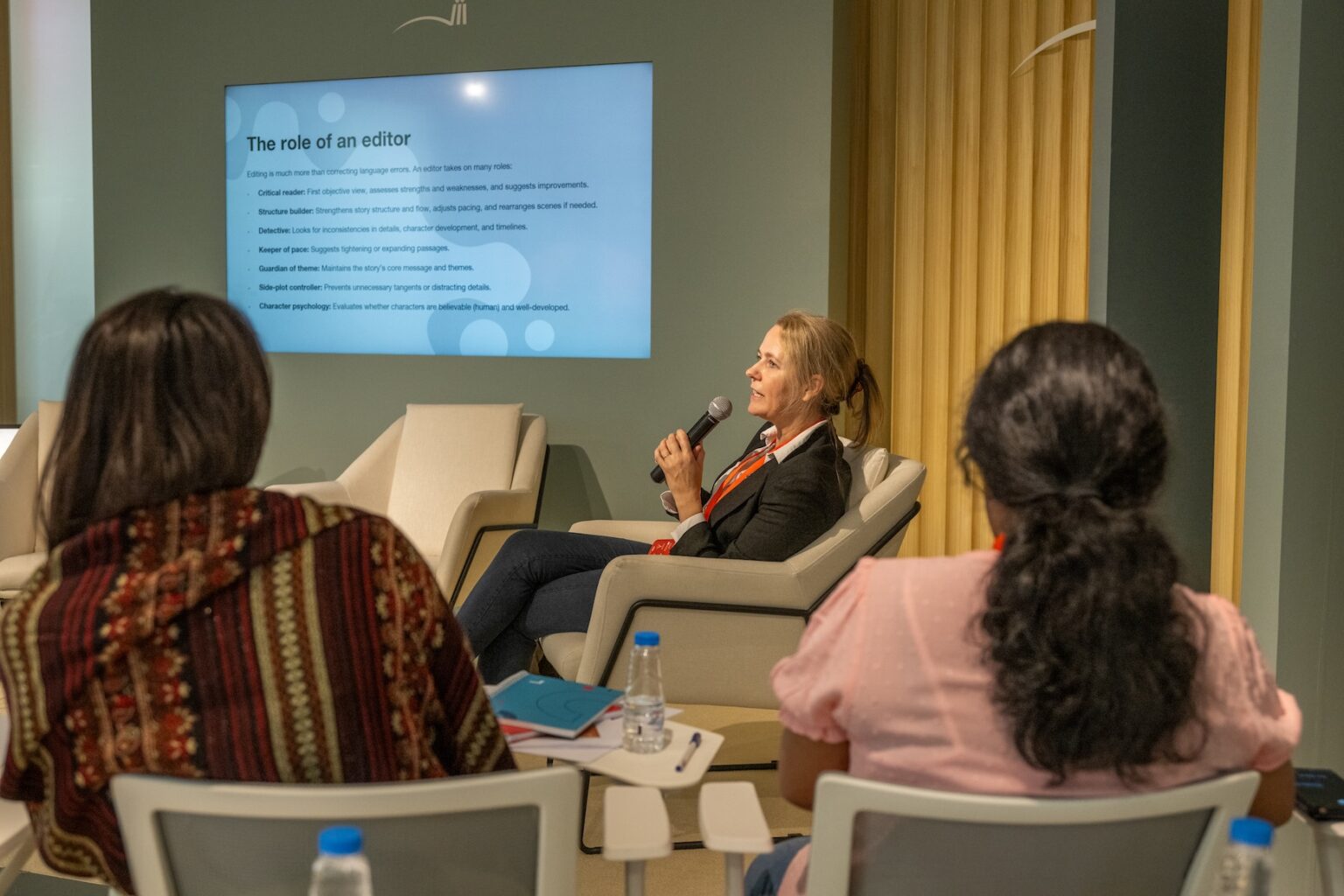Renowned Dutch editor and author Denise Larsen captivated an audience of writing professionals during her session, “The Art of Editing with Denise Larsen”, at the 43rd Sharjah International Book Fair (SIBF), held at Expo Centre Sharjah. Drawing on over 26 years of experience, Larsen shared invaluable insights into the editorial process, from manuscript submission to author collaboration.
Attendees explored step-by-step techniques, common challenges faced by editors, and the transformative power of a skilled editorial hand. Larsen described the editor’s role as multifaceted, likening it to “making a marriage work” by blending critical reading, structural analysis, and thematic refinement to strengthen the story without imposing one’s own style.
Behind the scenes: The production journey
Larsen outlined the typical production timeline, which often spans a year, with nine months dedicated to writing and three to production. She began with manuscript acquisition, where editors assess a story’s strength, necessity, and character engagement. Editorial meetings follow, where manuscripts are evaluated, action plans devised, and decisions, including rejections, finalised.
In discussing manuscript editing, Larsen highlighted the importance of balancing plot, structure, and character development in fiction while addressing wordiness and redundancy. For non-fiction, she stressed the advantage of a lay perspective, supported by subject expert reviews.
Larsen also referenced well-known rejections, such as those of JK Rowling and George Orwell, underscoring the resilience required in publishing.
Human touch in the AI era
On the impact of Artificial Intelligence, Larsen remarked that AI serves as a helpful tool for initial corrections and idea generation, likening it to “a smart intern or author partner.” However, she emphasised that AI cannot replicate the personal connection and nuanced judgement that an editor provides.
To wrap up her session, Larsen engaged participants in an exercise where they created chapter outlines on topics such as remote work, healthy eating, or mental resilience. After hearing their drafts, she offered constructive feedback, reinforcing the need for editors to be detail-oriented, communicative, and driven.
“The best part of being an editor is witnessing the growth of both manuscript and author. It brings immense satisfaction every time,” she concluded.
The 43rd edition of SIBF, themed “It Starts with a Book” and organised by the Sharjah Book Authority (SBA), concludes today.

